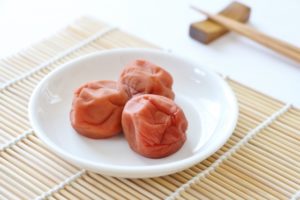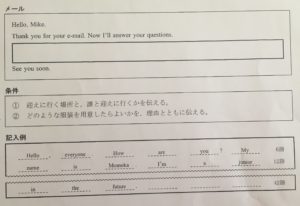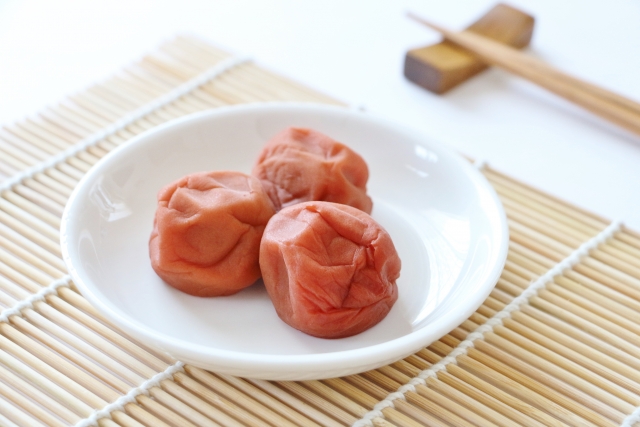北海道公立高校入試分析(英語)の4回目です。
今回は、[4] を扱いますが、
[4]は学校裁量問題で、A と B があります。
A は「長文読解問題」、B は「自由英作文」となっています。
A の配点は、
問1〜問3は2点、問4は各2点で計4点、問5も各2点で計4点
で合計14点
B の配点は、6点
全部で20点となっています。
[4]
次の A, B に答えなさい。
A
次の英文は、高校生の政孝と南アフリカ (South Africa) から来た留学生のザック (Zach) が、ホームステイの初日に書いたそれぞれの日記です。これを読んで、問いに答えなさい。
【Masataka】
– Zach arrived at my house in the morning. I was very glad to meet him.
– When he entered our house, my dad was very surprised because he didn’t take off his shoes. He didn’t know that we usually take off our shoes *inside the house in Japan.
– At lunch time, we ate Japanese food which my mom made. He *seemed to like
it. However, when he ate the *pickled plum, he told her he didn’t like it. My mom looked surprised when he said that. I knew this was a kind of *difference in culture. Anyway, we enjoyed our lunch time with him and he showed her his *appreciation.
– At night, I told Zach about my experience in America. When I stayed with my host family, I couldn’t tell them how I felt about *spicy food. I didn’t like it, but
I didn’t want to *disappoint my host family. When they asked me, “Do you like
this dish?” I answered, “Yes. This is very delicious!” So they often gave me spicy food and I had to eat it.
– Zach and I were in the same situation, but he didn’t do the same thing as me.
【Zach】
– Today was my first day in Japan! Masataka and his family were very kind and everything was new to me.
– When I entered the house, Masataka’s dad looked surprised and *shouted “Oh, wait!” I didn’t know that I must take off my shoes. They were not *dirty, so I thought I didn’t have to take them off. In South Africa, we usually take off our shoes when they’re dirty. This was the first thing that was interesting to me in Japan.
– Masataka’s mom cooked many kinds of Japanese dishes for lunch. Most of them were great, but only one of them wasn’t good for me because it was too *sour. She didn’t ask me *if I liked it or not, but I said to her, ” I 【 】.” She was surprised when I said that. I didn’t understand why she was surprised because I just gave my *opinion to her. But, thanks to her, I enjoyed our lunch a lot, so I gave her a big *hug after lunch. She was surprised again.
– At night, Masataka and I talked a lot. I was surprised to hear about Masataka’s experience in America. He told me that Japanese people sometimes don’t talk about their ideas with each other because they want to *respect other people’s ideas first. I didn’t know this until Masataka told me about it. In South Africa, we usually talk about our feelings or opinions because we want other people to know what we’re thinking. I think it’s very difficult to *guess how people feel all the time, but I’ll try to do it like Masataka and other people.
(注)
inside 〜の中で seem 〜のように思える pickled plum 梅干し
difference 違い appreciation 感謝 spicy 香辛料のきいた
disappoint 失望させる shout 叫ぶ dirty 汚い sour すっぱい
if 〜かどうか opinion(s) 意見 hug 抱擁、ハグ respect 尊重する
guess 推測する
問1 下線部を具体的に表す英語として最も適当なものを、ア〜エ から選びなさい。
ア Zach gave his host mother his father’s opinion.
イ Zach told his host mother about his experience.
ウ Zach gave his host mother a big hug.
エ Zach told his host mother to eat more sour food.
問2 本文の内容に合うように、次の対話文の< >に入る適当な英語を1語で書きなさい。
“Why was Masataka’s dad surprised when Zach entered the house?”
“Because Zach < > his shoes when he entered the house.”
問3 本文の内容から考えて、【 】に入る適当な英語を書きなさい。
問4 本文の内容と合わないものを、ア 〜オ から2つ選びなさい。
ア Zach liked all of the Japanese food which was made by Masataka’s mother for lunch.
イ Masataka’s parents were surprised because Zach did things that Japanese don’t do.
ウ Masataka and Zach always tell others what they’re thinking because they want other people to know their feelings.
エ Masataka will try to understand the feelings of other people who don’t like talking about their ideas.
オ Masataka thinks that most Japanese try to respect other people’s ideas when they talk with each other.
問5 就寝前、政孝とザックは、次のような会話をしました。これを読んで、(1), (2) に答えなさい。
Masataka : How was your first day in Japan.
Zach : It was great! I’ve learned that Japanese culture has many things which I
– should know, and I’ve found that people in [ ] countries have many
– [ ] ways of thinking and *acting.
Masataka : I see. I think it’s good for us to talk about our own opinions.
Zach : Yes. I’ll go to your school next week, but before I go, could you tell me
– something about Japanese school life which may not be the same in countries
– outside Japan?
Masataka : Well, I think we usually 《 》at Japanese schools.
(注) act 行動する
(1) 本文の内容から考えて、[ ] に共通して入る適当な英語を1語で書きなさい。
(2) あなたが政孝になったつもりで、《 》に入る英語を2語以上で自由に書きなさい。
問1の解説と解答
問1 下線部を具体的に表す英語として最も適当なものを、ア〜エ から選びなさい。
ア Zach gave his host mother his father’s opinion.
イ Zach told his host mother about his experience.
ウ Zach gave his host mother a big hug.
エ Zach told his host mother to eat more sour food.
【選択肢の意味】
ア ザックはホストマザーに自分の父の意見を与えた。
イ ザックはホストマザーに自分の経験を話した。
ウ ザックはホストマザーに大きなハグをした。
エ ザックはホストマザーにもっとすっぱい食べ物食べるように言った。
【解説】
・下線部は he showed her his appreciation「彼は自分の感謝を彼女に示した」という意味です。
▶︎下線部の前は、
昼食時の話で、ザックが梅干しだけは嫌いだと言って、母が驚いたという話になっています。最後には、「いずれにせよ、彼との昼食の時間を楽しんだ」とあり、下線部の英文になります。
▶︎今度は、同じ時間帯(at lunch)での、彼の日記の部分を探すと、
– She was surprised when I said that. I didn’t understand why she was surprised becauseI just gave my opinion to her. But, thanks to her, I enjoyed our lunch a lot, so I gave her a big hug after lunch. She was surprised again.
※ she = Masataka’s mother ( host mother ) , I = Zach
となっています。
▶︎he showed her appreciation の部分に当たる、Zach の行動が示されているのは
おそらく上記の赤線の部分です。
日本語にすると
「彼女のおかげで、私は昼食をとても楽しみました、だから私は昼食後彼女に
大きなハグをしました。」
となります。
【解答】
ここから、下線部の表す英語として正解となるものは、
ウ Zach gave his host mother a big hug. となります。
問2の解説と解答
問2 本文の内容に合うように、次の対話文の< >に入る適当な英語を1語で書きなさい。
“Why was Masataka’s dad surprised when Zach entered the house?”
“Because Zach < > his shoes when he entered the house.”
【解説】
・ 会話文の内容はおおよそ下記の通りになります。
便宜上、最初の質問をしている人をA、それに答えている人をBとします。
A:なぜ政孝の父はザックが家に入った時驚いたのですか。
B:なぜならザックは家に入った時自分の靴を< >から。
▶︎話題は、
「政孝の父が、ザックが家に入った時驚いた理由」です。
そこで、それぞれの日記の最初の部分を見てみると、
Masakata の日記には
👉When he entered our house, my dad was surprised because he didn’t take off his shoes.
書かれています。
▶︎日記の「赤線」の部分が「父が驚いた理由」ですが、
「彼が(ザック)自分の靴を脱がなかったから」
とあります。
【解答】
ここから、正解は、
赤線の because he didn’t take off his shoes をそのまま使って
didn’t take off となります。
(Because Zach didn’t take off his shoes when he entered the house.)
問3の解説と解答
問3 本文の内容から考えて、【 】に入る適当な英語を書きなさい。
【解説】
・【 】が入る英文を確認します。
▶︎【 】の段落の前の部分を確認すると下記の通りです。
Masataka’s mom cooked many kinds of Japanese dishes for lunch. Most of them were great, but only one of them wasn’t good for me because it was too *sour. She didn’t ask me *if I liked it or not, but I said to her, ” I 【 】.”
「政孝の母は昼食にたくさんの日本食の料理を作りました。それらの大部分はとても良かったが、1つだけはとてもすっぱいので私にとって良くなかった。彼女は私にそれが好きかどうか尋ねなかったが、私は彼女に言いました、『私は〜』」
▶︎すなわち、問題の部分は、
ザックが唯一好きでなかったものを食べた時に
ザックが実際に「母(ホストマザー)に言ったこと」です。
▶︎この部分と対応する「政孝」の日記の部分は、次の通りです。
However, when he ate the pickled plum, he told her he didn’t like it.
「しかしながら、梅干しを食べた時、彼(ザック)は彼女(ホストマザー)に自分がそれが好きでないと言いました。」
ここから、
▶︎「ザックが実際に母(ホストマザー)に言ったこと」
= (he told her) he didn’t like it となります。
👉ただし、問題文が ” I 〜 .” と実際にザックがホストマザーに言った言葉となるので、
「過去形」の表現を「現在形」に直す必要があります。
【解答】
ここから、正解は、didn’t を don’t にして
don’t like it となります。
( , but I said to her, “I don’t like it.”)

問4の解説と解答
問4 本文の内容と合わないものを、ア 〜オ から2つ選びなさい。
ア Zach liked all of the Japanese food which was made by Masataka’s mother for lunch.
イ Masataka’s parents were surprised because Zach did things that Japanese don’t do.
ウ Masataka and Zach always tell others what they’re thinking because they want other people to know their feelings.
エ Masataka will try to understand the feelings of other people who don’t like talking about their ideas.
オ Masataka thinks that most Japanese try to respect other people’s ideas when they talk with each other.
【選択肢の内容】
ア ザックは昼食に政孝の母が作った日本の料理の全てが好きであった。
イ 政孝の両親はザックが日本人がしないことをしたので驚いた。
ウ 政孝とザックはいつも自分たちが考えていることを他人に伝える、なぜなら彼らは他の人に自分たちの感情を知ってもらいたいから。
エ 政孝は自分の考えについて話すのが好きでない他の人の感情を理解しようとするつもりだ。
オ 政孝はお互いに話をする時たいていの日本人は他の人の考えを尊重しようとすると考える。
【解説】
◎1つ1つの選択肢を確認しましょう。
ア 問3で取り上げたように、ザックは唯一梅干しは好きでなかったようです。
→ However, when he ate the pickled plum, he told her he didn’t like it.
▶︎ここから「全てのもの」が好きではないので、❌
イ 政孝の父と母は、それぞれ別のことで驚いています。
[父] – When he entered our house, my dad was very surprised because he didn’t take off his shoes.
「彼が私たちの家に入った時、父は彼が自分の靴を脱がなかったのでとても驚いた。」
[母] – My mom looked surprised when he said that.
「母は彼がそれを言った(梅干しが嫌いだと)時、驚いたように見えた。」
※2つとも Masataka の日記から
▶︎ここから両親がザックがしたことに驚いたことに間違いないので、⭕️
ウ 「自分の意見を伝える」ことに関して、ザックはこう自分の日記に書いています。
→ In South Africa, we usually talk about our feelings or opinions because we want other people to know what we’re thinking.
「南アフリカでは、私たちは普通自分の感情や意見について話します、なぜなら私たちは
他の人に自分たちが考えていることを知ってほしいからです。」
一方政孝は、自分も含めて日本人は自分の考えを話さないこともあると言っています。
→ He told me that Japanese people sometimes don’t talk about their ideas with each other because they want to respect each other’s ideas first.
「彼は日本人は他の考えを第一に尊重したいので、お互いに自分の考えを話さないこともあると私に話した」※ザックの日記から
▶︎そして、政孝は自分のアメリカの体験で、自分もそうであったと話しています。
▶︎すなわち、政孝とザックの2人ではなく、「ザックだけ」が選択肢のように行動しているので、❌
エ 政孝は、「一般的な日本人の言動」については話をしていますが、
「自分の考えについて話すことが好きでない人」については、どちらの日記にも明記されていません。
▶︎ここから、❌ となります。
オ 政孝は、日本人の思考について選択肢ウ でも取り上げたように、
→ He told me that Japanese people sometimes don’t talk about their ideas with each other because they want to respect each other’s ideas first.
「彼は日本人は他の考えを第一に尊重したいので、お互いに自分の考えを話さないこともあると私に話した」※ザックの日記から
▶︎ここから、⭕️ となります。
【解答】
ここから、正解は、
イ Masataka’s parents were surprised because Zach did things that Japanese don’t do.
オ Masataka thinks that most Japanese try to respect other people’s ideas when they talk with each other.
の2つとなります。
問5の解説と解答
問5 就寝前、政孝とザックは、次のような会話をしました。これを読んで、(1), (2) に答えなさい。
Masataka : How was your first day in Japan.
Zach : It was great! I’ve learned that Japanese culture has many things which I
– should know, and I’ve found that people in [ ] countries have many
– [ ] ways of thinking and *acting.
Masataka : I see. I think it’s good for us to talk about our own opinions.
Zach : Yes. I’ll go to your school next week, but before I go, could you tell me
– something about Japanese school life which may not be the same in countries
– outside Japan?
Masataka : Well, I think we usually 《 》at Japanese schools.
(注) act 行動する
(1) 本文の内容から考えて、[ ] に共通して入る適当な英語を1語で書きなさい。
(2) あなたが政孝になったつもりで、《 》に入る英語を2語以上で自由に書きなさい。
【(1) の 解説と解答】
・会話の前半部分の内容を確認しましょう。
政 孝:日本の初日はどうでしたか。
ザック:すごく良かった。日本の文化に自分が知るべきたくさんのことがあるのを知りました、そして[ ] の国の人々は考え方と行動の仕方に [ ] な方法があるのに気づきました。
▶︎政孝の日記には、真ん中あたりに、ザックの考え方、行動の仕方を見て
I knew this was a kind of difference in culture. となります。
👉ここから、推測するに、
[ ] には「様々な、異なる」という意味の形容詞が入ることがわかります。
【(1) の解答】
ここから、正解は
different となります。
– and I’ve found that people in different countries have many different ways of
thinking and acting.
【(2) の解説と解答】
・会話の後半部分の内容を確認しましょう。
政 孝:なるほど。私は自分自身の意見について話すことは私たちにとって良いことだと
思います。
ザック:そうですね。私は来週あなたの学校へ行く予定です、しかし行く前に、私に
日本以外の国々では同じではないかもしれない日本の学校生活について教えてくれませんか。
政 孝:ええ、たいてい日本の学校では《 》と思います。
▶︎この流れからすると、
《 》には、
おそらく「日本の学校特有のすること」について具体的に英語で表現すれば
いいのだと予測できると思います。
▶︎他の国にはない、日本の学校特有と考えらえることとしては、
・制服を着る
・給食を教室で食べる
・掃除を自分たちでする
・基本的に自分の教室( homeroom )で授業を受ける
などが思い浮かぶのではないでしょうか。
👉この中で、自分が英語で表現できるものを選んで、答えると良いと思います。
【(2)の解答】
ここから、解答例として
・we usually wear uniforms at Japanese schools.
・we usually eat school lunch at our classrooms at Japanese schools.
・we usually clean our classrooms at Japanese schools.
・we usually study in our homerooms at Japanese schools.
などがあります。
B
次のメールは、あなたが、10月にハワイから北海道にホームステイに来る予定のマイク (Mike)に送るものです。あなたは、このメールの🔲にどのような英文を書きますか。条件にしたがって、30語以上の英語で自由に書きなさい。ただし、英文は記入例の書き方にならうこと。

Bの解説と解答
【解説】
まずは、
「条件」を確認しましょう。
① 迎えに行く場所と、誰と迎えに行くかを伝える。
② どのような服装を用意したらよいかを、理由とともに伝える。
そしてメールを送る相手は
「10月にハワイから北海道にホームステイに来る予定のマイク」です。
▶︎10月、ハワイ、北海道の言葉に気をつけて
英文を考える必要があります。
※ここを押さえた上で、英文を考えるわけですが、
最初の「2つの条件」をできるだけシンプルに英語で伝えるだけで
30語以上の英語になりそうです。
まずは、
条件①から考えます。
– [迎えに行く場所]
→新千歳空港でOKだと思います:at New Chitose Airport
– [ 誰と迎えに行く]
→両親であれば with my parents / 家族であれば with my family / 兄、姉であれば with my brother (sister)
条件②を考えると
-[どんな服装]
→10月の北海道なので、「暖かい服装 ( warm clothes )、コート ( coat )、マフラー( scarf)」などが想定
-[その理由]
→ハワイより北海道は寒い、がその理由となるでしょう:colder than in Hawaii
【解答】
これらの条件①と②から、想定される語句を活用して
英文を作るとよいと思います。
下記に幾つかの解答例を示します。
👉「家族で迎えに行く」の一例
I will wait for you at New Chitose Airport with my family. You need a lot of warm clothes and a coat because it is colder in Hokkaido than in Hawaii . (31語)
👉「兄と迎えに行く」の一例
My brother and I will go to New Chitose Airport and wait for you. I think it is much colder in Hokkaido than in Hawaii, so you should bring warm clothes with you. (33語)
👉「両親が迎えに行く」の一例<公式の正答例>
I’ll wait for you at New Chitose Airport with my parents. You should bring warm clothes and a coat with you because it’ll be colder in Hokkaido than in Hawaii. (30語)
👉「姉と迎えに行く」の一例
I will go to New Chitose Airport with my sister, and we will wait for you there. We think you have to bring a lot of clothes with you because it is colder in Hokkaido than in Hawaii. (38語).
※「ハワイより北海道より寒い」の表現では、
「天気・気候・寒暖を示す it 」を用いるのが基本です。
( Hokkaido is colder than Hawaii. では「北海道そのもの」がより寒い、というニュアンスでとられることが多いそうです。ただし、ネットではどちらもOKとする native もいます。)
これで
北海道公立高校入試分析は終了です。



コメント